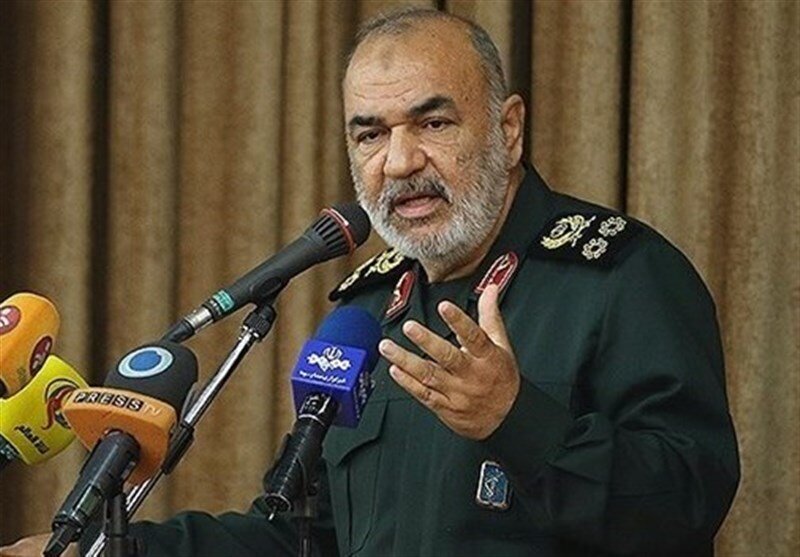IRGC chief: It is wrong to think Iranians will surrender under increasing economic pressure

TEHRAN – Chief of the Islamic Revolution Guards Corps (IRGC) has warned the enemies to put an end to their anti-Iran plots or face consequences.
“We tell you that if you do not abandon (your hostile acts), we will set fire to your interests,” Tasnim quoted Major General Hossein Salami as saying on Thursday.
He also warned that Iran will take revenge against any hostile act.
Salami said the enemy is wrong to think it can coerce Iranians to surrender by increasing economic pressure.
The more the pressure, he said, the stronger the people’s determination will become to resist the enemy.
The more the pressure, Salami says, the stronger the people’s determination will become to resist the enemy.
U.S. President Donald Trump has adopted a maximum pressure policy against Iran since he walked away from the JCPOA. The policy includes sanctions on Iran’s economy, especially its oil exports, and bans on top Iranian figures and organizations. At the same time, the U.S. president has pushed for talks with Tehran.
Iranian leaders have openly rejected the notion of talks with the U.S. as long as its illegal sanctions against Tehran are in place.
Tehran has described the U.S. sanctions as “economic war” and “economic terrorism”.
It also says sanctions on the central bank will prevent it to buy food and medicine.
Foreign Minister Mohammad Javad Zarif said last month that the United States’ sanctions and economic war on Iran have targeted the ordinary people’s health and livelihood.
“There was a time when such warfare was used to simply limit the activities of some countries. However, new warfare of the United States and what Trump has called the ‘economic war’ have targeted the ordinary people’s livelihood and health,” the chief diplomat lamented.
In response to U.S. withdrawal from the JCPOA, Iran announced on May 8 – the anniversary of the withdrawal – that its “strategic patience” is over and would gradually reduce its commitments to the deal at 60-day intervals, which were designed as deadlines for Europe to protect Tehran’s economic interests under the deal.
So far, Iran has taken four steps in that regard.
In the first step, Iran removed cap on its nuclear deal stockpile which was limited to 300 kilograms enriched to purity of 3.67 percent. In the second step, which started in July 7, Iran started enriching nuclear fuel to more than 3.67 percent. In the third step, which fell on September 6, Iran removed ban on nuclear research and development (R&D). And in the fourth step on November 6, Iran started to inject uranium gas into centrifuges at the Fordow nuclear facility.
Tehran has repeatedly said its measures will be revered as soon as Europe finds practical ways to shield the Iranian economy from unilateral U.S. sanctions.
MH/PA
Leave a Comment